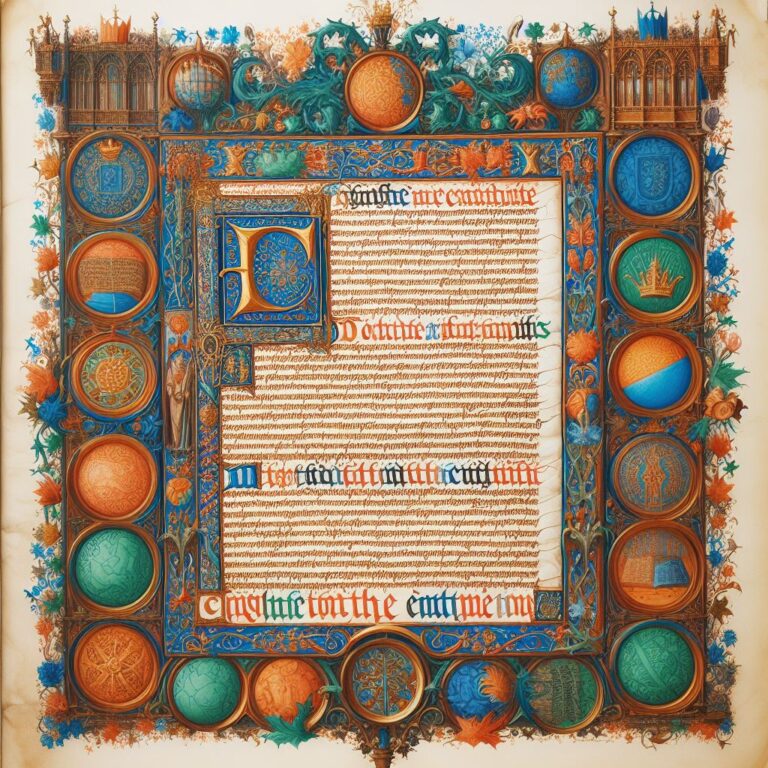Rising from the mists of medieval England, the Magna Carta stands not just as a historical document, but as a potent symbol of individual rights and limited government. Signed on June 15, 1215, by King John after months of rebellion by barons, it wasn’t a revolutionary document advocating radical change. Instead, it aimed to curb the monarch’s absolute power and re-establish the “ancient liberties” enjoyed by the nobility. Yet, its impact transcended its immediate context, laying the groundwork for centuries of legal and political advancements.
From Rebellion to Reform: The Seeds of the Magna Carta
Imagine England in the early 13th century as a simmering cauldron. King John, known for his volatile temperament and heavy taxation, had alienated both barons and the common people. His losses in France, coupled with exorbitant spending, fueled discontent. The barons, weary of his arbitrary rule and disregard for their traditional privileges, banded together, demanding reforms. Their rebellion culminated in the signing of the Magna Carta at Runnymede, a meadow on the banks of the Thames, on a sweltering June day.
Beyond Barons: A Legacy Reaching Far and Wide
While primarily aimed at protecting the rights of the nobility, the Magna Carta’s impact rippled beyond its intended recipients. Clause 39, arguably the most famous, stated: “No free man shall be seized or imprisoned or dispossessed or outlawed or exiled or in any way destroyed, nor will we go or send against him, except by the lawful judgment of his peers or by the law of the land.” This simple sentence enshrined the principle of habeas corpus, the notion that no one can be imprisoned without due process, a fundamental right that continues to resonate today.
A Living Document: Evolving Through the Ages
The Magna Carta’s significance lies not only in its content but also in its adaptability. Unlike many historical documents relegated to dusty archives, it underwent numerous revisions and reinterpretations throughout the centuries. Each generation found within its clauses principles relevant to their own struggles for liberty. In 1628, Sir Edward Coke, a renowned jurist, referenced the Magna Carta in his fight against the arbitrary rule of King Charles I, laying the groundwork for the Petition of Right and ultimately the English Civil War.
From Feudal Contract to Universal Ideal:
While initially aimed at protecting the rights of barons in relation to the monarch, the Magna Carta’s impact gradually extended far beyond its intended recipients. Over time, its principles were reinterpreted and championed by diverse groups struggling for their rights. For example, in the 19th century, British activists fighting for the rights of women and workers cited the Magna Carta as a precedent for demanding equal treatment under the law. Through these reinterpretations, the document transformed from a feudal contract into a symbol of universal ideals like fairness, due process, and justice for all.
A Living Legacy: Inspiring Activism and Change in the Modern World:
The Magna Carta’s influence continues to resonate in the modern world, inspiring individuals and movements advocating for social change. From Nelson Mandela’s fight against apartheid in South Africa to the ongoing struggle for LGBTQ+ rights, activists have drawn inspiration from the Magna Carta’s principles of accountability and individual rights. In a globalized world facing complex challenges, the document serves as a reminder of the fundamental values we must strive to uphold – values that continue to guide legal systems, human rights movements, and the ongoing pursuit of a more just and equitable world.
Across Continents: A Global Inspiration Sparking Revolutions
The Magna Carta’s influence transcended national boundaries. Its principles echoed across the Atlantic, inspiring the American colonists in their fight for independence from British rule. The founding fathers of the United States saw themselves as heirs to the Magna Carta’s tradition, incorporating its ideals into the Declaration of Independence and the US Constitution. Consider the striking parallels between Clause 39 and the Fifth Amendment’s guarantee of due process, or the influence of the Magna Carta’s emphasis on limited government on the American system of checks and balances.
Enduring Legacy: A Beacon for Freedom Still Shining Bright
Today, the Magna Carta stands as a testament to the enduring human desire for liberty and limited government. Its principles have inspired countless revolutions, legal reforms, and social movements around the world. From the anti-apartheid movement in South Africa to the fight for universal suffrage, the echoes of the Magna Carta can be heard in the voices of those seeking justice and equality. While the document itself might seem archaic, its core values remain relevant, reminding us that the fight for individual rights and checks on power is a continuous journey.
Looking Ahead: A Legacy Unfolding, A Future Shaped by its Ideals
The Magna Carta’s story continues to unfold. In an era of rising populism and challenges to democratic institutions, its principles hold renewed importance. As we navigate complex global issues, the Magna Carta’s call for accountability, respect for the law, and individual rights serves as a powerful reminder of the values we strive to uphold. It can guide us in protecting freedoms, ensuring due process, and holding authorities accountable, reminding us that the principles enshrined in this ancient document remain crucial for safeguarding a just and equitable future.
Check out more articles like this at History Archives – Topic In One Article
